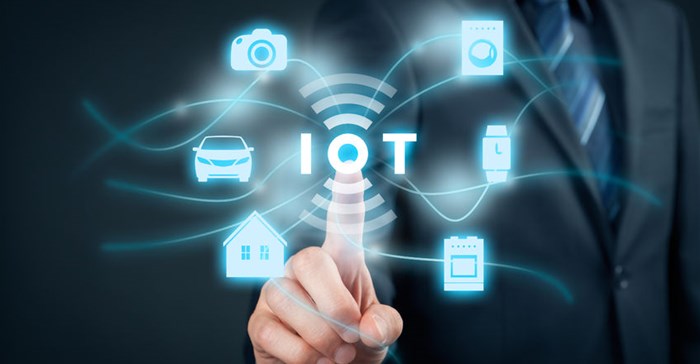
Top stories




Marketing & MediaWarner Bros. was “nice to have” but not at any price, says Netflix
Karabo Ledwaba 1 day


More news

Logistics & Transport
Maersk reroutes sailings around Africa amid Red Sea constraints

















This radical new technology is driving what many are calling the Fourth Industrial Revolution or, more colloquially, 4IR. There is nevertheless a strong case to be made for early investment in IoT, as it is almost certain to become the standard operating platform in all industries and sectors in the future.
Of course, business has had good reason to be cautious about internet-based innovation in the past. Individuals, companies and institutions alike were burned in the dot.com bubble of 1995 to 2001 and, as a result, may be wary of investing in this latest technology. There are, however, important real-world differences between the dot.com event and IoT, and savvy investors need to be aware of these in order to benefit from early opportunities.
The most important difference, of course, is that IoT, by its very nature, has definite and tangible applications in the real world, unlike many of the dream factories of the dot.com era. It has, for instance, already been successfully used in sectors as diverse as agriculture, electricity supply, and asset tracking.
In agriculture, one of the most relevant applications - especially in the drought-prone South African environment - is in irrigation management. Smart irrigation systems connected to an IoT network are able to ensure that crops are irrigated only when weather and soil conditions indicate this is necessary, which has a dual benefit for connected farmers.
Firstly, it enables them to make sure their crops are effectively irrigated throughout the growth cycle, vastly reducing the risk of crop failure. Secondly, it reduces one of their most significant input costs, the cost of water. Taken together, this means they can reliably produce healthy crops at a lower cost, which inevitably gives them a huge advantage over competitors.
In a devolving energy supply environment, a similar logic applies, with IoT giving power utilities the opportunity to be more efficient and to reduce input costs and wastage. Similarly, consumers can benefit by being able to access information that allows them to manage their energy usage better.
These are just two examples that make an excellent case for early investment. But the most persuasive argument may be how the entire market will change when IoT is more commonly used.
Companies that invest early will be able to demonstrate vastly improved efficiency in all areas of operation. IoT technology will make them more competitive and enable them not only to be more profitable, but also to secure and maintain long-term leadership positions.
This will fundamentally change the way in which the forces of supply and demand work in the market as a whole and will eventually make it an operational necessity for all companies to introduce IoT. Those that introduce it at a later stage will, however, see a lower level of benefit due to the law of diminishing returns.
What is important to bear in mind, of course, is that ROI in IoT will be phased.
As with all investments in a major technological advancements, the benefits of introducing IoT will be incremental. There will obviously be immediate, short-term gains, but the bigger return will be on improved efficiency throughout the business in the long-term. That is where both companies and investors will see the true value of this technology, which has almost endless applications.